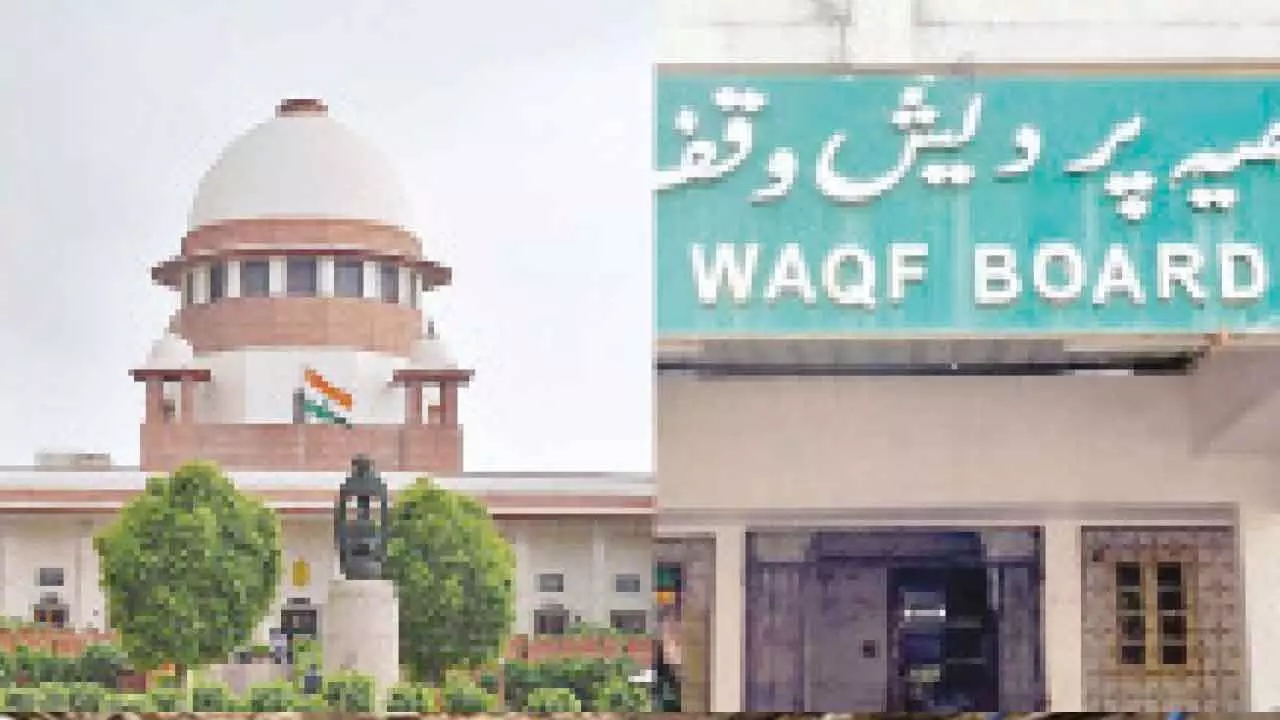WAQF LAW-II: Chalti kya, round...round?

Hyderabad: Residents of Pallavi Enclave of Guttala Begumpet of Serilingampally plead that it is Section 40 of the Wakf Act, 1995 that is making the lives of citizens topsy turvy since it opens a window for misuse of power and abuses the citizen’s rights. They argue that the section accords unbridled power to the Waqf Board to declare any property by issuing a notification, without any obligation to first produce sufficient evidence to claim ownership.
The plot owners cite their long-running legal battle as a role-model case on how the burden of responsibility proving the ownership falls on the people, but not on the Waqf Board which claims ownership, and “all it had done was give notification of the claim over the land, making us go through an endless legal battle.”
Explaining their case, the Pallavi Enclave plot owners said that lands in Survey. No. 1 to 9 of Guttala Begumpet Village are private patta lands, originally part of the Nizam’s family estate. They were sold to private parties through auction and later developed into Pallavi Enclave. Plots were sold to individuals, some of whom have built walls or fences to protect their property.
That was when the Waqf Board appeared on the scene and claimed the land as Waqf property. “Its claim is that the land has been endowed by the Mughal Emperor Aurangzeb. Though there was no evidence supporting this claim, it has issued a notification, leading to multiple legal cases.” The High Court set aside the Waqf Board’s notification and dismissed the Waqf Board’s claim against the landowners upholding their possession, stating “the Board failed to prove ownership.” After this, review petitions were filed by the land owners to the extent of the observations of the High Court in directing the parties to approach the competent court for declaration of title. The review petitions were allowed on April 18, 2016 upholding the title of the land owners. However, the Waqf Board appealed these decisions.
Subsequently, the Supreme Court upheld the High Court’s decision to the extent of setting aside the notification. But, set aside the declaration of the title while giving liberty to both parties to approach a competent court. It also allowed the Waqf Board to issue a new notification “if proper legal procedures were followed.” The Waqf Board issued a new notification. When the same was again challenged it was set aside by the High Court in Writ Petition No. 19424/2017. The High Court, in its order dated January 7, 2020 set aside the Gazette notification, stating that it did not follow the procedures required under the Waqf Act and the Supreme Court’s directions. The court noted that the Waqf Board failed to provide any evidence to support its claim to the property, relying only on a previously rejected assertion that the land was endowed by Emperor Aurangzeb.
Following this, the Waqf Board has appealed the latest High Court decision. However, the Division Bench has not stayed the single judge’s order. The case is ongoing, with the appeals posted for final hearing.
The president of Pallavi Enclave, Devendar Reddy Mettu says that the entire revenue records support the case of the land owners. “The Wakf Board’s claim of an oral gift by Emperor Aurangzeb is not supported by any evidence or records.” Further, whenever approached, the higher officials in the successive governments admit “We are the real owners of the land. But, they do it only in private.” When it comes to taking action, they say, “they cannot take any action since the issue is in the courts. Also, they are helpless since the issue in question attracts Section 40 of the Wakf Act-1995.”
The issue has gone through the land-grabbing court to the single and division benches at the high court level and then to the apex court for the past two decades. “Now, once again the litigation started all over again with the Waqf Board invoking Section 40, making the plot owners, to go in round and round from lower court to the high court to the apex court only to once to go through another cycle of litigation.” Section 40 of the Wakf Act-1995 is the culprit that is playing havoc in their lives and this has to be addressed, they urged the Joint Parliamentary Committee on the Wakf Amendment Bill-2024.







